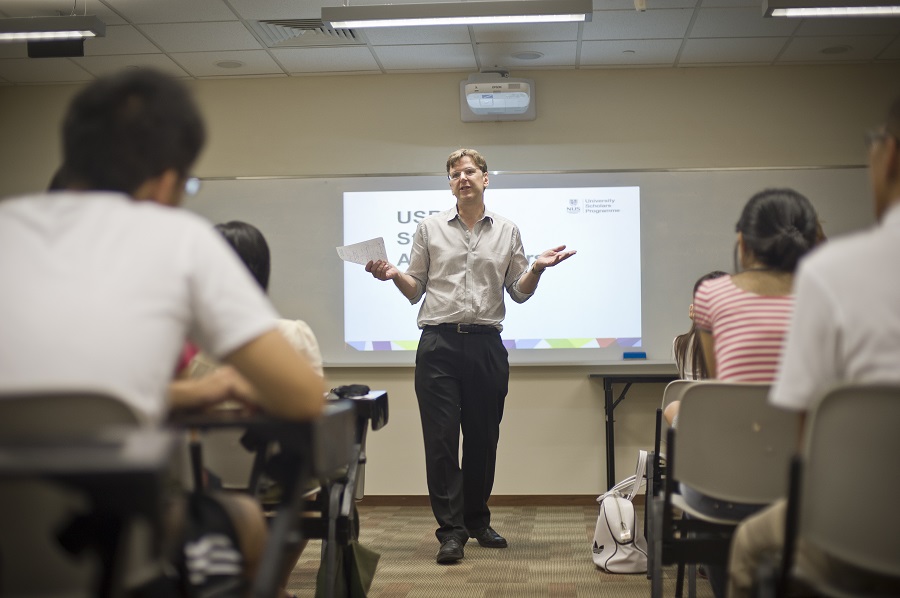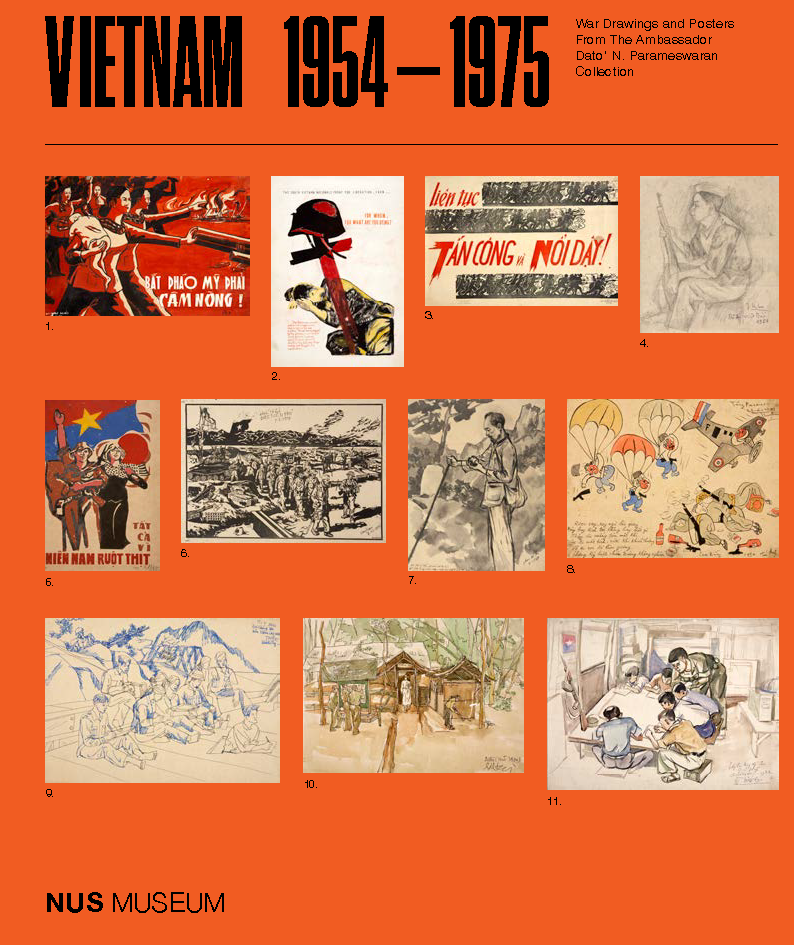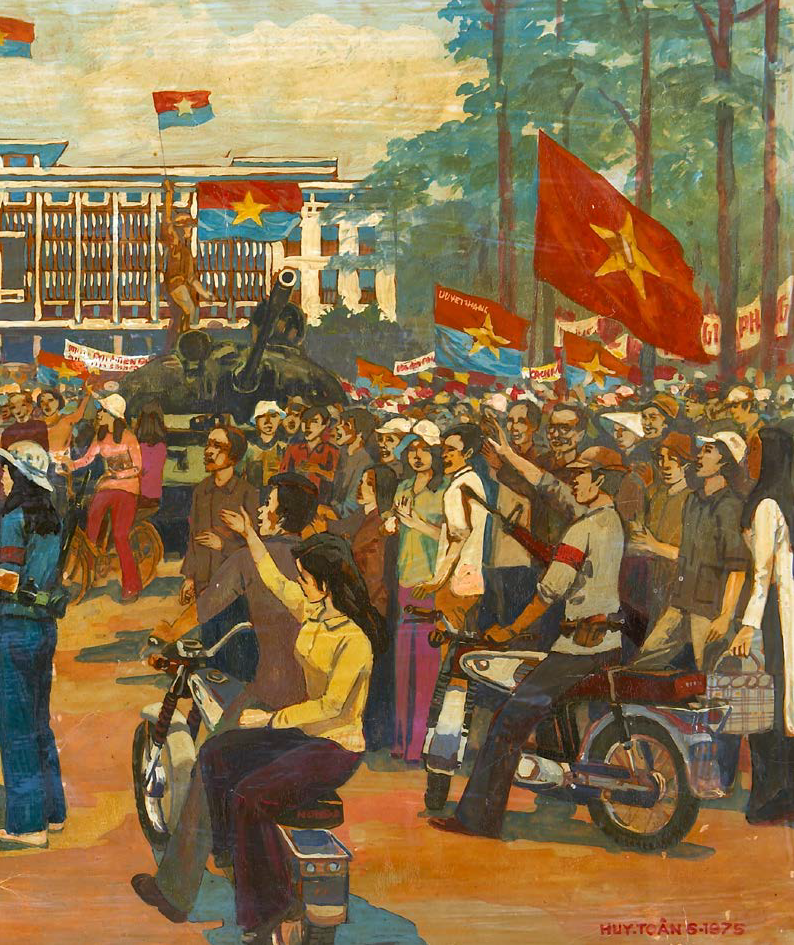Professor John Richardson Teaching Again at USP
By Mary Wong Yong Li (Political Science + USP, Class of 2017)
Mary is a student writer for USP Highlights.
Published: 28 December 2015

It’s really great to have you teach in USP next semester. Could you describe the module for us?
The module is called “Imagining War,” which is really the focus of my own research. We’ll spend the first few weeks considering how to approach a representation of war – so, thinking about what questions to ask and establishing a method of interpretation. Then, we’ll move to a case study – the Vietnam War, which is known in Vietnam as the American War. We’ll look at texts from both sides of the war: stories, journalism, movies, poems, paintings, posters and photographs. There’s a great exhibition of Vietnamese posters and paintings in NUS Museum at the moment, and we’ll spend at least two weeks on that. What we’ll be trying to understand is not just how each side saw the particular war in its own way, but how they might have understood war itself differently from each other.
Why is this topic important?
War is the biggest catastrophe that human beings create and experience. When we think about how wars start and are conducted, we tend to assume that decisions are made in a more or less rational way. My own guess is that they’re not. It seems likely to me that the kind of shared fantasies people create about wars – through books, pictures and films – influence or determine whether and how they’re fought. So, an understanding of war representation also contributes to an understanding of war itself.
How is the approach in your module/teaching interdisciplinary?
It brings in literary, art and film studies as well as politics and history. And there’s scope for more interdisciplinarity than even that implies. Scientists and technologists imagine wars just as artists do. The weapons they create reflect their imagination. That’s true of strategists as well.
How do you think the class will be different from one in the Department of English Language and Literature?
Apart from the materials, the students are different. I’ve taught literature modules at levels 1000 and 4000 in the last semester, and I’ve got used to the kind of class in which student interests largely converge. I’m curious to see in the upcoming semester how the mix of student backgrounds in USP can be used to make this a more interesting and illuminating class. I’d like science and technology students, for instance, to bring their knowledge to the module. And business students will be able to help us think about the ways in which representations are intended to influence the behaviour of a group. I’m really looking forward to this part. We’ll all understand the topic better because of each other.
Have you any thoughts on USP now that you have been away for a semester?
Well, of course, I miss it at times, even though I’m very much enjoying being back in the department where I grew up professionally. I always liked the energy in USP, and it seems to me that Prof Kang (Hway Chuan) is channeling that in the right directions. His attempts to bring the programme and the college closer together are just what we needed, and something I didn’t manage to pull off. I think he will. I also like very much his idea of the USP Fellows programme, which has gotten started and is shaping up nicely. That kind of focus on enquiry should be at the heart of USP.
Check out the Vietnam Exhibition by clicking below (Photo credit: NUS MUSEUM)



